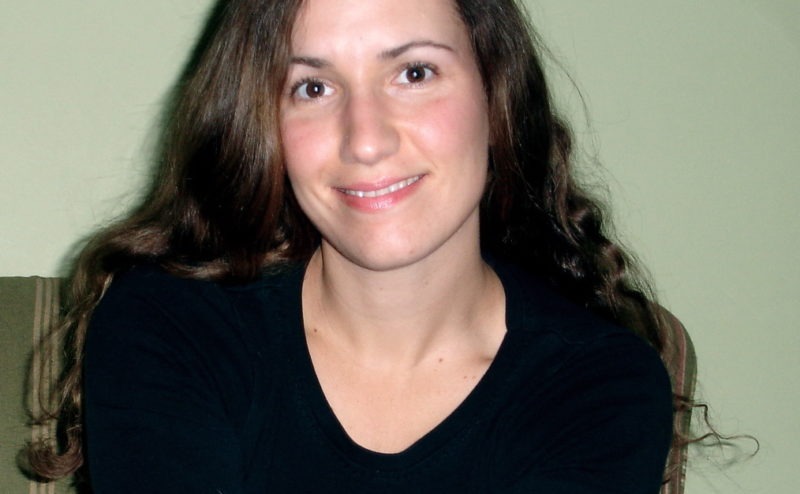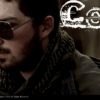
Interviews | Los Angeles | Screenwriting
The Writing Life is Never on Hold
Written by Cheryl Eagan-Donovan | Posted by: Anonymous
Jami Brandli is a storyteller. She launches into the tale of trekking with her husband and writing partner Brian Polak from the East Coast to the West, and from the classroom to the writers’ room, without missing a beat.
“On July 1st, with just three hours until the final deadline, I dropped the application and script off at the Central Square post office in Cambridge,” she explains. She and Polak decided last minute to send the spec script they had written for an episode of The Office to the Disney-ABC Television Writing Fellowship Program. It had to be a script for an existing show. “We knew that the odds of our being chosen were next to none,” she says. A few weeks later, they packed up everything they owned and drove across the country with their dog to pursue the dream of being full-time writers in Hollywood.
But, “It was more like a nightmare,” she laughs. “We arrived in California and stayed on a friend’s air mattress for five weeks. We had to put the dog in a doggy spa — it was that or a box. We were in two car accidents in the first two weeks. I couldn’t find a job. Everything was slowly coming to a halt because of the impending writers’ strike. I interviewed for an office assistant position for a sci-fi show. Then the day the strike was declared, we got word that we were finalists for the Disney Fellowship.”
Their script was one of only 20 chosen from over 2,000 submissions. Since there were still several steps left before a winner was announced, Brandli remained cautiously pessimistic. “I’m such a seasoned writer, I know rejection all too well.” The fellowship includes $50,000 and a year of mentoring from Disney executives.
Before the finalists were announced, she had enrolled in a course at the UCLA Extension School in how to write a one-hour script. The teacher, Bruce Miller, gave concrete advice on subjects including show franchises, writers’ room etiquette, and producers’ notes. So when Frank Gonzalez, head of talent at Disney interviewed her by phone, Brandli knew what she was talking about. He asked for another spec script for an existing show in order to be considered for the next round. She agreed immediately, but didn’t actually have a script.
“I’m a playwright first,” Brandli explains. She’s had several plays produced but has only finished one television spec — the one she sent for the fellowship. Her Big Love script for the class at UCLA was still in draft form. She showed an original television pilot to her friend Marty Jonson, a comedy writer from Boston, who told Brandli she thought it was strong enough to submit. So Brandli and Polak went to an LA spot called the Coffee Table to polish it up when a group of striking writers approached their table. “They said, ‘We’d appreciate it if you wouldn’t do this in public,’ and handed me a red band. Brian explained that it was a spec script for a fellowship, but they didn’t care.”
Five days later, they learned that they had passed on to the final round. They headed to a cocktail mixer at Disney Studios where they mingled with the other finalists and 15 Disney executives. Brandli describes her strategy, “You don’t want to have too much fun. You can’t be too cocky but you have to be confident enough to say, ‘We’re experienced and you should choose us.’ I’m the sociable one in our partnership, so I loved it.”
After a successful face-to-face with seven Disney execs (Brandli and Polak made them laugh), the VP of Development at Disney told them, “We’ll call in the next 10 days.” “Those were the worst 10 days!” says Brandli. “Every time a call came in from a restricted number, I had a mini heart attack. Every time it turned out to be my mom, who also has a restricted number, and kept calling to see if we’ve heard anything yet. I became a neurotic mess.”
Finally, at 1 pm on the 10th day, they got the call. Disney had decided not to announce the fellows until the strike is resolved. “Suddenly, our lives are put on hold. If we get the fellowship, our lives will change dramatically — anything is possible,” she says. The call came in early December and friends who work in the industry tell Brandli no one knows when the strike will end. Some speculate it could be months. “Even my teacher at UCLA is hitting the pavement,” says Brandli.
So what will Brandli do while she waits? She’ll make use of her long credit-roll of experience: She completed her undergraduate degree at Emerson College, followed by an MFA in 2004. She started her teaching career at the Grub Street writers’ salon, leading the screenwriting division, and staged readings with professional actors at the Coolidge Corner Theatre. She taught screenwriting at Emerson from January 2005 until June 2007. In 2007, she also chaired Women in Film & Video/New England’s annual screenwriting competition.
She is currently teaching an online course at Northeastern University, a creative writing course at the UCLA Extension School, and heading up the new Writing for Stage and Screen MFA program at Lesley University in Cambridge, along with Barry Brodsky and Kate Snodgrass. “Low residency programs like Lesley’s MFA are the new trend for screenwriters and playwrights,” Brandli offers. Low-residency programs bring together faculty and students from across the country for intensive, in-person residencies, usually once per semester. Students and faculty correspond by mail or e-mail in between. Lesley’s program is the first to offer a terminal degree in screenwriting in this part of the country.
Brandli was back on the East Coast last month to work with the first group of students accepted into the Lesley MFA program during its eight-day residency. She’s a tough critic in the classroom, but always a storyteller. Over lunch, she entertains one of her students with a detailed account of how she met her husband at a party and how they ended up a married writing couple, the only married writing couple to be chosen as finalists for the Disney Television Fellowship.
It was the hardest and also the easiest decision they ever made, she says. In Boston, they had produced their own work out of pocket. Their show, P.S. Page Me Later (scenes inspired by FOUND Magazine) won an Eliot Norton Award in 2006. But if they wanted to pursue a career in television and film, they couldn’t do that in Boston. “In television, they want to meet you in an hour, not when you can buy a ticket and arrange to fly out,” Brandli explains.
A student asks about writing with a partner. “We compliment each other really well,” she boasts about her husband. “He’s definitely the idea guy. I’m the structure person. I put the ideas into a format that works, then we work together on the story and the script.” She recounts the first time they tried to write something together. “We had a fight. We decided then to leave the marriage out of the work. Why would you ruin the writing mojo?” she asks. As a playwright, Brandli still writes solo. “That’s my blood and soul on the page,” she says. “Writing for television with a partner is great but we need to each have our own projects too. That keeps the fresh ideas coming.”
What does she think about the writers’ strike? “I support them 100 percent — if they don’t get what they deserve then I get screwed too. They’re laying the groundwork for all writers in terms of Internet sales." Brandli admits that she watches The Office and 30 Rock on her computer if she misses an episode. She realizes that viewership is heading in that direction. "I’ll join them on the strike line when I get back from Boston,” she tells the students.
What advice would she give aspiring writers about writing for the screen, the stage and the Internet? “Each discipline has its own freedoms, costs and benefits. With film you have the opportunity to collaborate, use multiple locations, and all you need is a camera. A play requires a theatre company and money. Still, nothing is better than a live performance that’s successful,” Brandli concludes. “I love being a playwright because I own my words. I am king in that land.”
Brandli’s short play Flooding was recently produced at the Steve Allen Theatre in Los Angeles, and another, Moon Man, played at the Hayworth Theatre. Her first play, Normal, was staged last month at the Little Fish Theatre in her new hometown. Success seems to follow her, even as she waits for the next door to open. “At the end of the day, you just have to keep writing, constantly. That’s all that really matters.”
To read more about Brandli and Polak’s adventures in Los Angeles, go to http://polandli.blogspot.com. For more on the Disney-ABC Television writing fellowship, in association with the Writers Guild of America/West, go to www.disneyabctv.com. To find out more about Brandli’s screenwriting courses for the MFA program at Lesley University, visit www.lesley.edu/info/stageandscreen.










